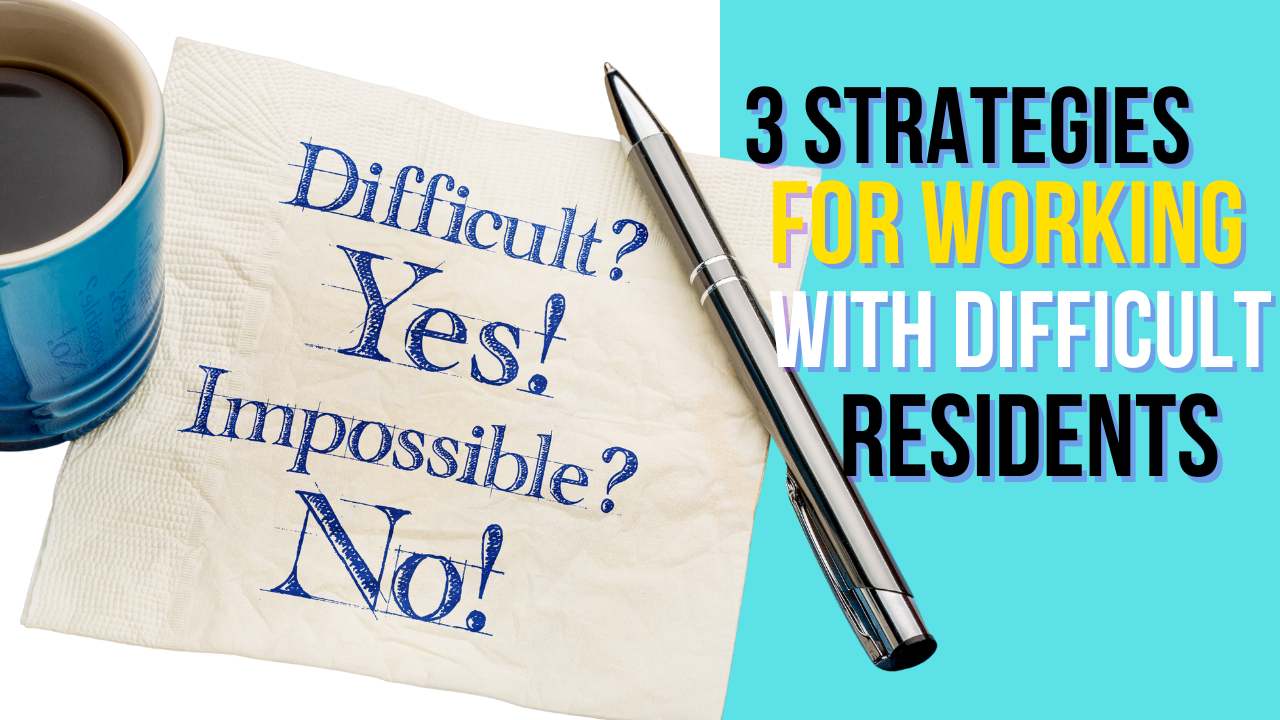3 Strategies for Working with Difficult Residents
Sep 22, 2025
On paper, this resident looks perfect. Their scores are outstanding. Their clinical reasoning is sharp. They read constantly. But in practice, the picture looks different. They interrupt during handoffs. They dismiss nursing input. They talk at patients instead of with them. They act like the smartest person in the room, but not the most effective. Medicine is a team sport. Brilliance without collaboration is not safe. So, how do you remediate a resident who excels academically but falls apart interpersonally? Let’s start with a case.
Case Example: Smart but Isolated
I’ve seen versions of this case many times. A PGY-1 resident is clinically sharp and consistently performs well on exams. But during team interactions, they roll their eyes, interrupt, and disregard input from colleagues. When confronted, they are genuinely confused. “I was just advocating for the patient” or “I didn’t mean to be rude; I was correcting a mistake.” In their mind, they are being thorough. To everyone else, they are being dismissive and disruptive.
The root problem? Identity. These residents equate academic excellence with competence. Soft skills feel optional. Teamwork seems inefficient. And to make matters worse, programs sometimes enable the behavior by praising scores while ignoring behavior until the complaints pile up. When that happens, light corrections are no longer enough. You need a structured remediation plan. Let’s walk through the strategies.
Strategy 1: Use 360 Feedback Early
Don’t wait for a meltdown before you start collecting feedback. A 360 evaluation gives a broad perspective that goes beyond what attendings see on rounds. Ask nurses, medical assistants, co-residents, and staff questions like:
- Does this resident listen to others?
- Do they adjust tone based on the situation?
- Do they support the team or undermine it?
The way a resident interacts with an attending can look very different from how they interact with peers or staff. Early feedback prevents surprises later.
Strategy 2: Make Communication Measurable
Telling a resident to “communicate better” means nothing. Instead, tie expectations to specific behaviors. Use milestone sub-competencies such as:
- Adjusts messages based on patient understanding
- Respects roles of the interprofessional team
- Accepts feedback without defensiveness
Structured tools like the mini-CEX or observation forms make communication measurable. This shifts the conversation from vague impressions to clear, trackable skills.
Too often, programs don’t realize their remediation process is vague until they’re asked to defend it. A plan that feels “good enough” may not actually be defensible if challenged. That’s why I created the free Resident Remediation Risk Assessment — it only takes a few minutes and helps you see if your process is fair, measurable, and defensible. → Take the Quiz
Strategy 3: Create Behavior-Based Remediation Activities
Podcasts and articles won’t fix poor communication. Behavioral change requires practice, observation, and feedback. Build remediation activities that focus on doing, not just learning. Examples include:
- Simulation labs with structured feedback on tone and teamwork
- Shadowing a senior resident who models collaboration
- Reflection journals after encounters
- Recorded patient interactions with review sessions
- Video precepting with faculty and resident self-review
These activities move remediation from theory to practice. You are not just teaching content, you are coaching habits.
The Turning Point: Insight
The real question is whether the resident develops insight. Do they understand how their behavior affects others? Do they take ownership, or do they simply perform during observation and revert back later? Providing specific examples is essential. When residents hear how their behavior was perceived, many are surprised. They often respond with, “I didn’t realize I came across that way.” Those moments can spark meaningful change.
Recap: When Smart Isn’t Enough
Medical knowledge matters, but it’s not the only thing that matters. Residency isn’t just about raising test takers. It’s about training physicians who can communicate, collaborate, and lead.
When a resident struggles with teamwork and communication, don’t ignore it just because their exam scores are high. Address it early. Use structured tools. Gather 360 feedback. Provide clear, behavior-based remediation activities. And most importantly, hold them accountable.
Final Thoughts
Brilliance does not equal competence. Programs recruit brilliant residents because they see their potential. But true success comes from pairing brilliance with growth in communication, humility, and teamwork. So, if you have a resident like this, don’t hope they grow out of it. They won’t. Coach them early, set measurable expectations, and support their growth. It’s okay to celebrate brilliance, but it’s even better to support progress.
For a comprehensive overview of remediation best practices, visit the Resident Remediation Guide:
Resident Remediation Guide
Written by Dr. Nicole McGuire (Doc Mac), Education Specialist at a Family Medicine Residency and Founder of Doc Mac Learning. Through her ELEVATE framework, she helps residency programs create remediation plans that are fair, defensible, and effective.
Worried about your remediation process? Take the free Resident Remediation Risk Assessment → See Where You Stand

